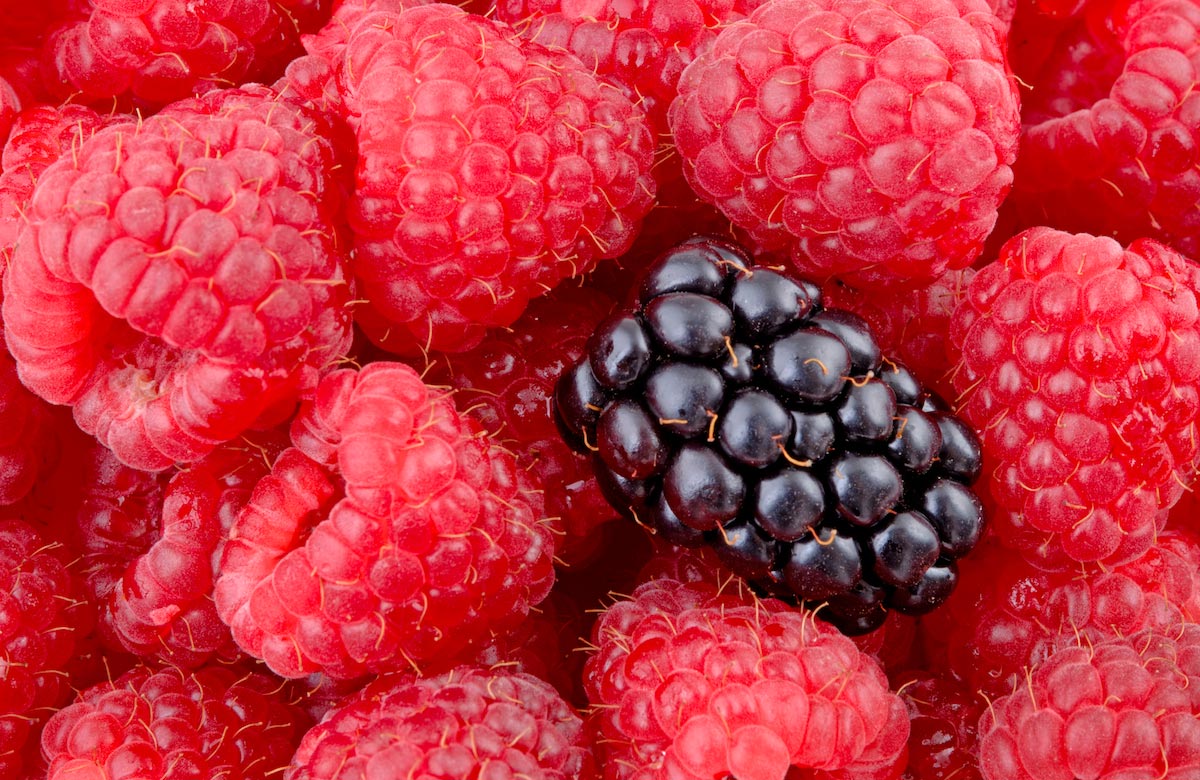This often forgotten berry has some amazing health benefits
03/29/2017 / By Rhonda Johansson

Blackberries are the often forgotten child of the berry family. Popular media has given its siblings, the strawberry, blueberry, and red raspberry, proper attention. But nutritionists say that Rubus fruticosus — the blackberry’s scientific name — should be given more notice. Blackberries are one of the highest scoring foods in the Oxygen Radical Absorbance Capacity (ORAC). This is a test that determines a food’s antioxidant capacity. Blackberries score an impressive ORAC score of 5,905 compared to strawberries (4,302), blueberries (4,669), and red raspberries (5,065).
The blacker the berry, the sweeter the fruit
Several studies hail blackberries as an excellent anticarcinogenic. The polyphenols which are abundant in blackberries prevent cell mutation. Along with its antioxidant properties, blackberries block cancer cells from developing along tissues. Those at risk of lung cancer are particularly advised to up their intake of blackberries. Anthocyanin — a type of polyphenol — was studied to have been an effective preventive measure against the growth of cancerous lung tumors.
Blackberries contain high levels of vitamin K. These soluble compounds have been linked with effective cancer prevention. Vitamin K1 and K2 are noted to have superior anti-tumor action. The nutrient affects tumor development by modifying their receptor molecules. Simply taking a serving of blackberries fills a third of your daily requirement for vitamin K.
The anti-coagulating properties of vitamin K make blackberries an ideal natural therapy for women who suffer painful bouts of PMS. Vitamin K can regulate hormone production, effectively reducing pain caused by cramps. It can also aid women who suffer from excessive bleeding.
Other benefits of vitamin K? Blackberries are good for people with cardiovascular problems. The vitamin K stops arteries from hardening by preventing plaque build-up. Eating a good amount of blackberries can reduce blood pressure and lessen the chance of a heart attack.
Studies conclude that blackberries are also an excellent superfood for brain health. Antioxidants help improve memory. A consistent diet of blackberries dramatically improves cognition and attention. A notable nutrient for brain health is manganese. Neural connections and processes rely on manganese to function properly. Research proves that a deficiency in manganese can lead to epilepsy. The polyphenols in blackberries also guard against neuron degeneration.
“Berry” good at fighting inflammation
Inflammation is the body’s natural defense against disease, however, our typical American diet makes us more prone to driving our bodily processes to extreme levels and increasing our risk of cellular inflammation. At a cellular level, oxidative stress can result in mutation. Nutritionists constantly encourage their clients to pay close attention to what they eat because there is a direct connection between what we place inside our body and how it responds to environmental stress.
Blackberries, when eaten regularly, protects the body from chronic inflammation. To wit: One study found that people who eat blackberries as a part of their balanced diet are 88 percent less likely to develop stomach ulcers. Blackberries also reduce damage caused by free radicals. We all know that processed foods increase the number of free radicals in the body. When we carry too many of these cells, we become more prone to disease and premature aging.
The fruit also shows impressive antibacterial characteristics. Dentists found that blackberries reduce the number of oral infections due to their ability to target only infected cells and leaving other, healthy cells untouched.
Take note that hand-picked, wild berries contain the highest number of antioxidants. Fruits that are flash-frozen and sold at your store are still good for you, but are less nutrient-dense. When choosing your blackberries, look for ones that are firm and shiny. We recommend buying these between August and September to get the freshest produce.
Sources:
Tagged Under: blackberries
RECENT NEWS & ARTICLES
COPYRIGHT © 2017 BRAIN NEWS


















